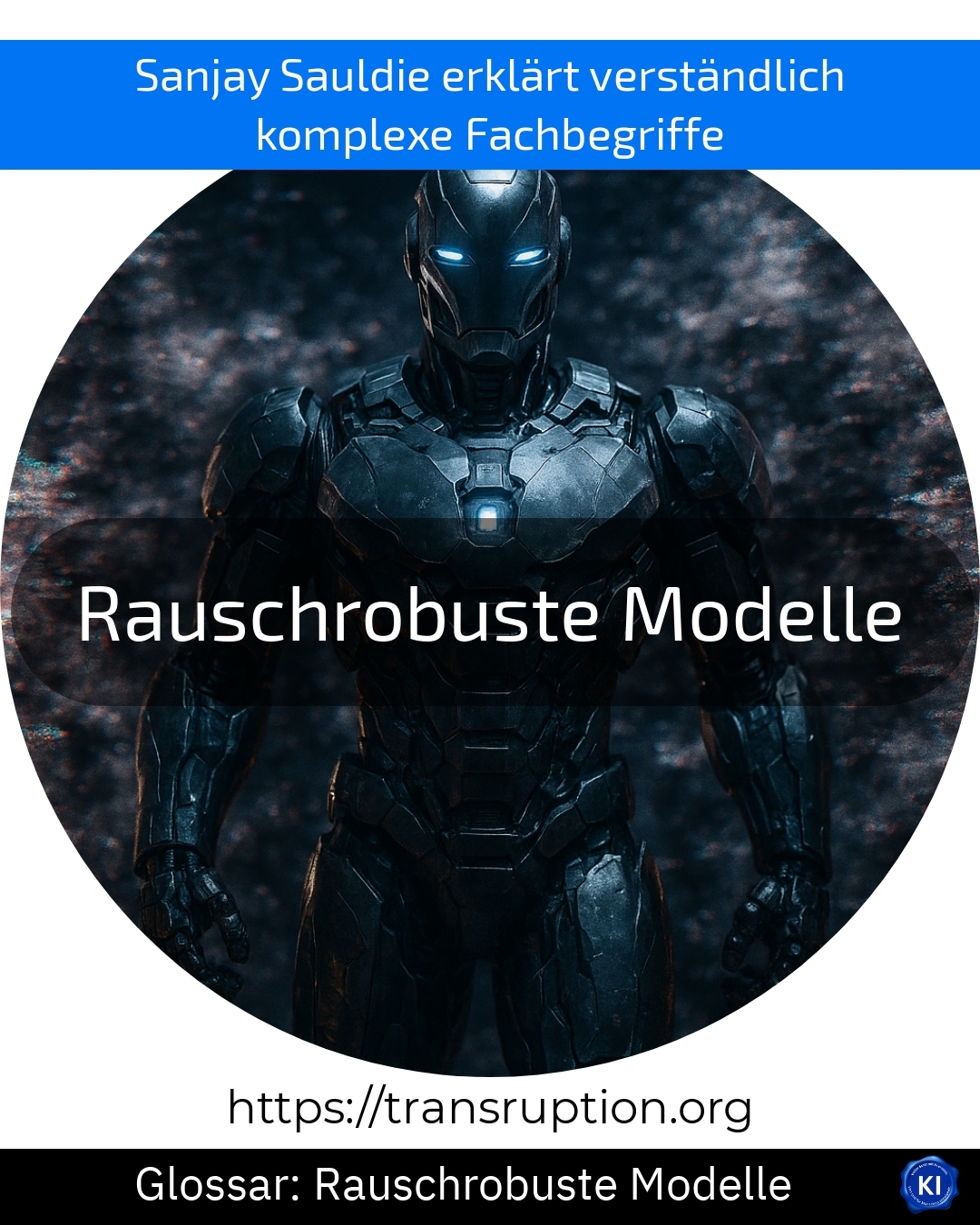Noise-robust models are particularly important in the fields of artificial intelligence, big data and smart data as well as Industry and Factory 4.0. They ensure that digital systems and machines function reliably despite faulty or inaccurate data.
In everyday life and in industry, so-called "interference" or "noise" often occurs in data. This means that measuring devices or sensors sometimes deliver incorrect values. A noise-robust model recognises such inaccuracies and still remains accurate and reliable. This prevents small errors from leading to major problems.
An illustrative example: In a production line, a sensor measures the size of workpieces. Sometimes dust or a defective component distorts the measurement result. A noise-resistant model recognises these outliers and still decides correctly whether the workpiece is OK or needs to be rejected. Without these models, faulty parts could go unnoticed or good parts could be wrongly rejected.
Noise-robust models therefore help to increase quality and security in data-driven processes. This creates trust in modern technologies and enables efficient and secure automation.















